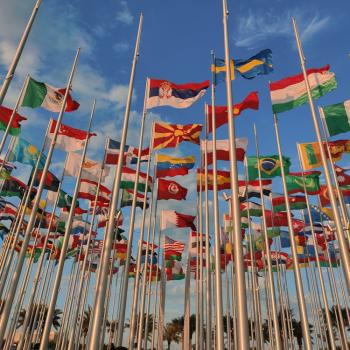![Picture By James Montgomery Flagg (1877–1960) [Public domain], via Wikimedia Commons](https://wp-media.patheos.com/blogs/sites/637/2016/12/It_was_impossible_for_Mr._Button_to_ignore_the_fact_that_his_son_was_a_poor_excuse_for_a_first%E2%80%90family_baby-300x238.jpeg)
The names of the classes of people in question might have changed, but the justification always remains the same. Those who are wealthy and in positions of power are there because they are different from everyone else. They are either intellectually or morally superior from the rest of society, and so they deserve the status and respect which they receive. This has always been the kind of propaganda they make, not only to justify their luxurious lifestyle, but also the harsh, cruel treatment they use to make sure no one displaces them from their superior position in society.
Of course, as Salvian understood a long time ago, such arguments are rubbish. Indeed, it is not uncommon for those who make them do so to hide their own truly reprehensible character, usually projecting their own evils on everyone else, undermining the rights and dignity of their so-called inferiors in the process:
Some among the rich say: ‘We do not do the same things slaves do. Slaves are thieves and runaways, slaves are constantly catering to their palates and stomachs.’ It is true that these are the vices of slaves, but the masters, not all of them, though, have more and greater vices.[1]
The slaves of Salvian’s day represent the ordinary, underpaid and over-worked laborer of today. They are looked down upon by the rich elite, their bosses, for the same reasons as the slave-lords looked down upon their slaves in the past.[2]
Nonetheless, the cause of the problems in the past, as it is in the present, did not lie with the underclass, but in the conditions in which they are forced to live an act, conditions which often required them to break various laws in order to survive. As Salvian indicated back in the past, so it is true today: when the law is unjust, the culpability lies not with those struggling to survive, but with those who made the condition so that the laws have to be broken. For this reason, Salvian indicated that if slaves were thought of as would-be thieves, the culpability lay not with the slaves but their masters and the society which they found themselves to be in:
First of all, if slaves are thieves, they are perhaps forced to steal through want. Even though customary allowances are given, these allowances satisfy custom rather than sufficiency and this fulfill the law without fulfilling the need. Their indulgence makes their fault less blameworthy, because the guilt of the thief who is unwillingly forced into theft is excusable. Holy Scripture seems to excuse in part the offense of the needy when it says: ‘the fault is not so great when a man has stolen; for he steals to feed his hungry soul.’ He steals to fill his hungry soul. For this reason, they who are excused by the Divine Word are not very well to be accused by us.[3]
Rather, Salvian concluded, those who were truly criminal and to be seen as deplorable, were the rich elite in society who abused the poor:
But you, the noble and rich, who have an overflow of all good things, who, because of this, should honor God by your holy works because you enjoy His blessings unceasingly, let us see whether your actions are, I do not say holy, but at least harmless. And, as I have said before, who among the rich, with a few exceptions, is not tined with all manner of crime?[4]
If they want to talk about following law and justice, Salvian was quick to point out how they failed the true law, the law of God, and so they will face true justice, not their sham justice, as the consequence of their actions: “If a slave is a runaway, so are you, O rich and noble, for all who forsake the Law of their Lord are runaways from their Master.”[5] And, as Jesus mentioned that mercy should be given to those who grant others mercy, why should the elite, creating horrible conditions for the underclass, and adding upon it laws which break them down even further, expect mercy when they are confronted with the righteous expectations of God?













